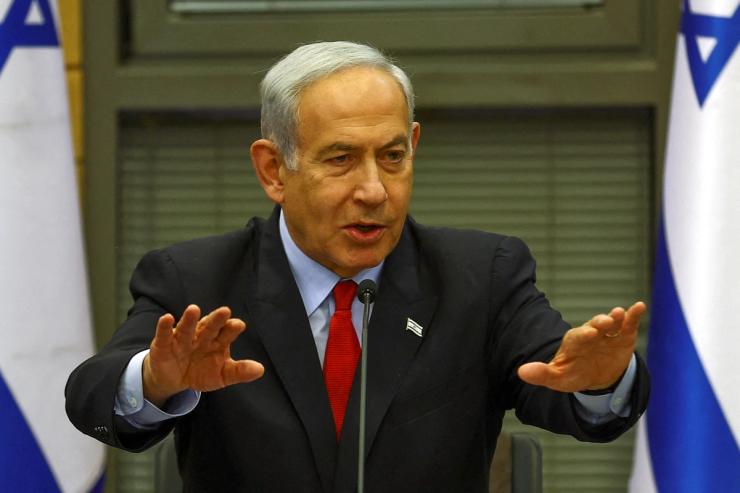The News
Israeli Prime Minister Benjamin Netanyahu on Friday released his first official post-war plan for Gaza, contradicting some of the primary security aspirations proposed by the United States.
Under his plan, Israel would maintain full security control over Gaza and the West Bank, including establishing an Israeli-controlled military buffer zone around the Palestinian enclave. The plan, if adopted, would cede administration of civilian life to Gazans without Hamas links, but it doesn’t propose the creation of a Palestinian state, countering Washington’s emphasis on a two-state solution. The plan also does not explicitly exclude the possibility of Jewish settlements in Gaza.
U.S. Secretary of State Antony Blinken on Friday reaffirmed Washington’s opposition to Israel’s “reoccupation” of Gaza.
SIGNALS
Plan doesn’t go far enough in preventing another Oct. 7 massacre
Netanyahu’s plan is “encouraging news” that “signals that the end of the war is in sight,” wrote columnist Ariel Kahana for Israel Hayom, a newspaper known for its pro-Netanyahu coverage. But, he argued, the plan does not touch on “the lessons that emerged from the [Oct. 7 attacks]:” chiefly, how Israel will signal to its enemies — beyond practical measures — that such atrocities can never happen again. During previous conflicts with Hamas, Netanyahu demanded disarmament before reconstruction, but eventually gave in and poured “endless supplies” into Gaza that reinvigorated Hamas. This time around, Kahana opined that the only way to make a statement was to reestablish Jewish settlements in the Gaza Strip to prove that “Israel is not going anywhere.”
Palestinians aren’t convinced Israel will give them local control
Netanyahu’s plan proposes that non-Hamas civilians will eventually govern Palestine, but its leaders are not convinced. Palestinian President Mahmoud Abbas’ office told Reuters that the plan would fail along with Israel’s ambitions of altering Gaza’s demography and geography. Ahmed Majdalani, a senior member of the Palestinian Liberation Organization (PLO), argued that that the security barricades around the West Bank — the PLO’s governing base — will further separate Gaza from civilian political authority and ensure that the two entities remain “isolated cantons,” Palestine’s Ma’an News reported. Netanyahu’s domestic critics are also pessimistic that the post-war plan will ensure meaningful reform. Ex-Mossad head Efraim Halevy told the Israeli military’s GLZ Radio that Netanyahu’s plan contradicts itself because Israel rejects legitimate Palestinian authority, but at the same time says the agreement cannot be negotiated without Palestinian representation. “Israel is negotiating with itself,” Halevy said.
Egypt draws ‘red line’ at resettling displaced Gazans
To create a buffer zone around the Gaza Strip, Israel would be required to invade the enclave’s southernmost city of Rafah, where most Palestinians have fled to escape Israeli bombardment in the north. A ground invasion risks displaced Gazans pouring into Egypt, which is “illegal and a red line for Egyptians,” a former Egyptian army general told Saudi Arabia’s Al Arabiya news network. While the Egyptian public sympathizes with Palestinians, it’s government does not want to be seen as supporting ethnic cleansing through permanently resettling Palestinians on its land, a pro-Palestinian academic, Liyana Kayali, wrote for The Conversation. The government also worries that Hamas could make Egypt its new base, which would threaten direct military confrontation with Israel and could pose a political threat to President Abdel Fattah El-Sisi.




